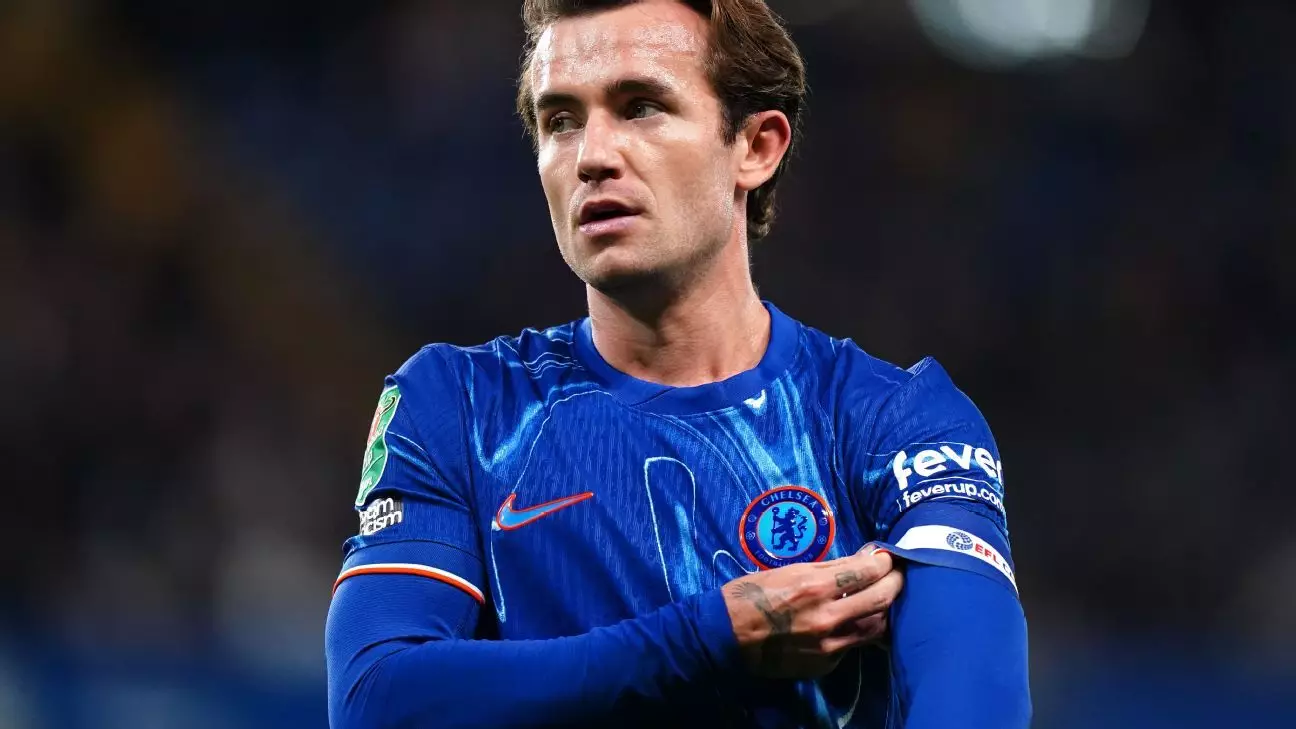In the ever-evolving world of football, player management and strategy are crucial elements that can dictate a club’s success. The recent remarks by Chelsea manager Enzo Maresca regarding Ben Chilwell highlight the intricate dynamics that exist within a football team. Chilwell, once a key figure in Chelsea’s lineup, has found himself sidelined under Maresca’s tutelage, raising questions about the coach’s decision-making and the treatment of players who have historically contributed significantly to the club.
While Chilwell’s previous performance record was commendable, featuring prominently for four seasons, his current situation reflects a broader issue within the team’s dynamics. Maresca’s admission of feeling “shame” about Chilwell’s treatment reveals a sense of empathy for the player’s plight. This emotional turmoil not only emphasizes the importance of player morale but also exposes the challenges managers face in balancing team strategy with player satisfaction.
Maresca’s assertion that Chilwell does not fit into his plans because of the emergence of other players—such as Malo Gusto, Reece James, and Marc Cucurella—underlines a tactical shift within the squad. However, the decision raises questions about the long-term implications for player loyalty and confidence. While the coach cites tactical preferences—specifically that he is “not a fan of full-backs going up and down”—it brings to light the risks associated with disregarding established players who have proven themselves in high-pressure situations.
The emphasis on versatility among the full-backs presents a dilemma: while coaches want adaptable players, neglecting those with a solid track record can lead to discontent, both individually for the sidelined players and collectively within the team. Chilwell’s struggle for playtime is a poignant reminder that football is not just a game of skills and tactics; it is also profoundly human, with inescapable emotional dimensions.
As Chelsea grapples with mounting pressure, with five consecutive league games without a win, the relationship between the coaching staff and players like Chilwell could become increasingly strained. The manager’s approach may seem tactical, yet its effects can ripple throughout the squad, affecting overall morale and performance. Reports of other players, such as Renato Veiga, feeling unsettled about their roles exacerbate this already tense environment.
The difficulty in position allocation for players in modern football further complicates matters. Maresca’s statements about the 21-year-old Veiga reflect a broader philosophy within Chelsea that values positioning versatility over established roles or preferences, possibly alienating players who may feel miscast or underappreciated.
Ultimately, the situation at Chelsea under Enzo Maresca reveals much about the complexities of leadership in football. Balancing team tactics with individual needs calls for a delicate hand, especially when established players find their roles diminished. What remains to be seen is whether Maresca can not only implement his vision for Chelsea but also nurture an environment where players feel valued, ensuring both team success and personal satisfaction are achieved.

